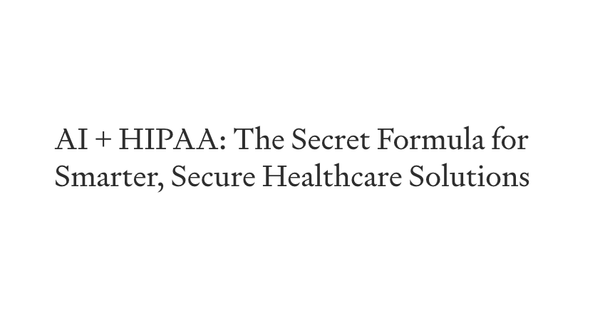How Defensive Medicine Threatens Patient Safety and Lives
Table of Content
What Is Defensive Medicine and Why Should You Care?
Ever wondered why some doctors seem to order tests that feel a bit... over the top? That’s defensive medicine in action. It happens when healthcare providers make decisions not necessarily because it’s best for the patient, but because they’re worried about getting sued. Sounds frustrating, right? But it’s a reality in many healthcare systems.
Defensive medicine usually involves either doing too much—like ordering extra tests or treatments “just in case”—or doing too little, like avoiding high-risk procedures altogether. While it’s meant to protect doctors, it can end up hurting patients, straining resources, and making healthcare more expensive. Imagine paying for unnecessary tests or being denied a treatment you genuinely need—that’s the kind of ripple effect defensive medicine can have.
This approach shifts focus from what’s truly evidence-based and patient-centered to what looks good in court. For patients, it can mean higher bills, longer hospital stays, and risks from unnecessary interventions. It also undermines the trust that’s supposed to be the cornerstone of healthcare.

Let’s dive into how this happens, why it’s becoming more common, and what we can do to tackle it.
The Rise of Defensive Medicine: What’s Driving It?
Defensive medicine didn’t just pop out of nowhere—it’s a product of fear, culture, and, let’s face it, the healthcare system itself. Doctors often feel caught between a rock and a hard place, balancing patient care and the fear of legal trouble.
In today’s litigious culture, the fear of malpractice lawsuits is real. Many doctors, especially in high-stakes fields like surgery or obstetrics, feel they have no choice but to “play it safe” by over-ordering tests or treatments. And it’s not just the lawsuits themselves—it’s the financial and reputational fallout that has everyone so cautious.
Healthcare reimbursement models can also add fuel to the fire. In systems where doctors are paid per service, there’s sometimes an unspoken incentive to tack on extra tests. And while technology has been a game-changer for diagnostics, it’s also made it easier to say, “Let’s just run one more scan, just in case.”
Training plays a role, too. Many medical schools emphasize avoiding mistakes and lawsuits rather than sticking to evidence-based care. Combine that with growing patient expectations (because let’s admit it, we all want answers yesterday), and the cycle of defensive practices only grows.
What Does Defensive Medicine Look Like? Real-Life Examples
Think of defensive medicine as a two-sided coin: doing too much or doing too little. Let’s break it down:
Overkill Mode (Positive Defensive Medicine)
- A doctor orders an expensive MRI for a simple headache—not because it’s necessary, but because they don’t want to miss the one-in-a-million chance it’s something serious.
- Patients get admitted to the hospital “for observation” when it’s not really needed, just so the doctor has proof they were thorough.
Playing It Too Safe (Negative Defensive Medicine)
- A surgeon declines to operate on a complex case, worried about the risks, even though the surgery could help the patient.
- An obstetrician chooses a C-section over a natural delivery—not because it’s safer, but because it carries less legal risk if something goes wrong.
In both cases, the patient is the one paying the price—financially, emotionally, and sometimes physically.
Why Defensive Medicine Stresses Doctors Out
Doctors are human, too, and the fear of being sued weighs heavily on them. Even minor mistakes—or bad outcomes that aren’t anyone’s fault—can lead to lawsuits. This constant pressure pushes many physicians to adopt defensive practices, even if they know it’s not the best care for the patient.
Here’s what’s going on behind the scenes:
- Perfectionism: Medicine is rarely black-and-white, but doctors are expected to get it right every time. That’s a lot of pressure.
- Peer Judgments: No one wants to be the doctor whose decisions are second-guessed or criticized.
- Patient Expectations: Some patients believe “good care” means more tests and treatments, making it hard for doctors to push back without seeming dismissive.
How Defensive Medicine Affects Everyone
Here’s the thing: defensive medicine doesn’t just hurt doctors. It affects patients and the entire healthcare system.
- For Patients:
- More tests = more bills.
- Unnecessary procedures = unnecessary risks.
- Fear and mistrust = worse relationships with doctors.
- For the Healthcare System:
- Resources get tied up in unnecessary care.
- Insurance premiums climb, and costs trickle down to you.
- Skilled doctors may avoid certain fields because the risks aren’t worth it.
What Can We Do About Defensive Medicine?
Defensive medicine isn’t inevitable, and there are ways to turn things around. Here’s what can help:
- Smarter Training: Teach medical students how to balance clinical care with legal risks without going overboard.
- Policy Changes: Introduce fairer malpractice laws, like capping damages or creating “safe harbors” for doctors who follow the guidelines.
- Tech to the Rescue: Use tools like AI and decision-support systems to guide evidence-based practices, cutting out the guesswork.
- Better Communication: Trust goes a long way. Patients who feel heard are less likely to sue.
How Patients Can Help Stop Defensive Medicine
Yes, you have a role in this too! Here’s how:
- Ask Questions: If a test or procedure seems unnecessary, speak up. Ask, “Why do I need this?”
- Be Informed: Learn about your condition so you can make better decisions with your doctor.
- Build Trust: A good relationship with your doctor makes it less likely they’ll feel the need to play defense.

The Bigger Picture: A Healthcare System That Works for Everyone
Defensive medicine is a symptom of a bigger problem: fear. Fear of lawsuits, fear of mistakes, and fear of losing trust. But it doesn’t have to stay this way. By focusing on trust, transparency, and fairness, we can create a healthcare system where doctors and patients are on the same team.
The ultimate goal? A system where every test, treatment, and decision is based on what truly matters: you.













